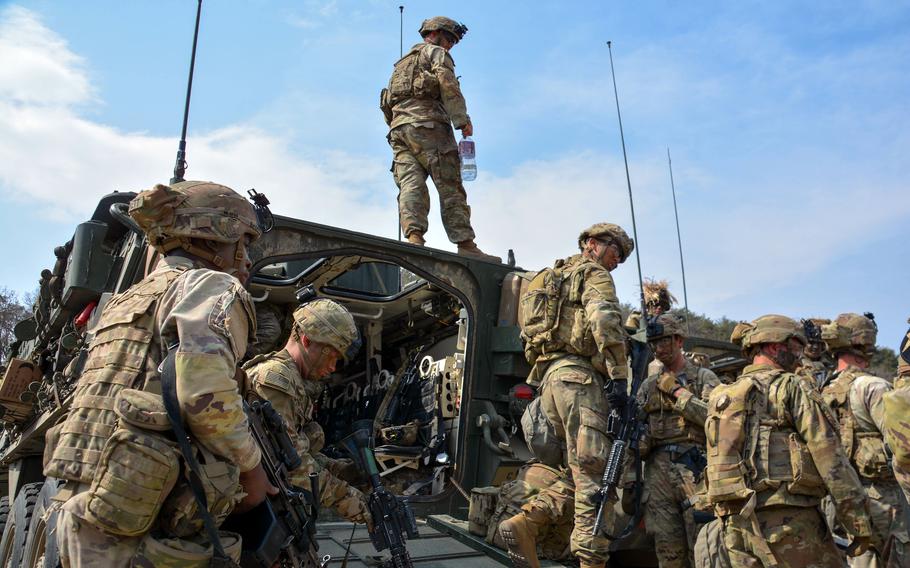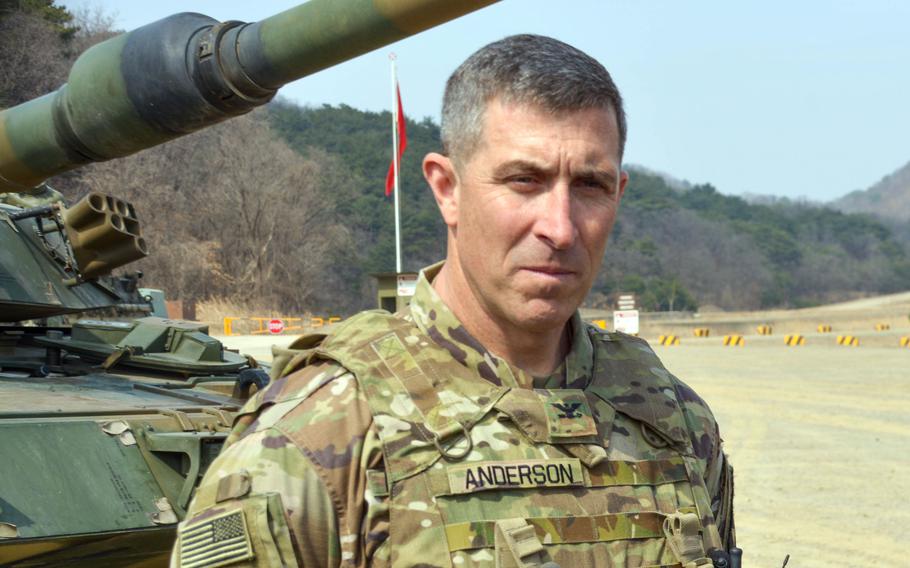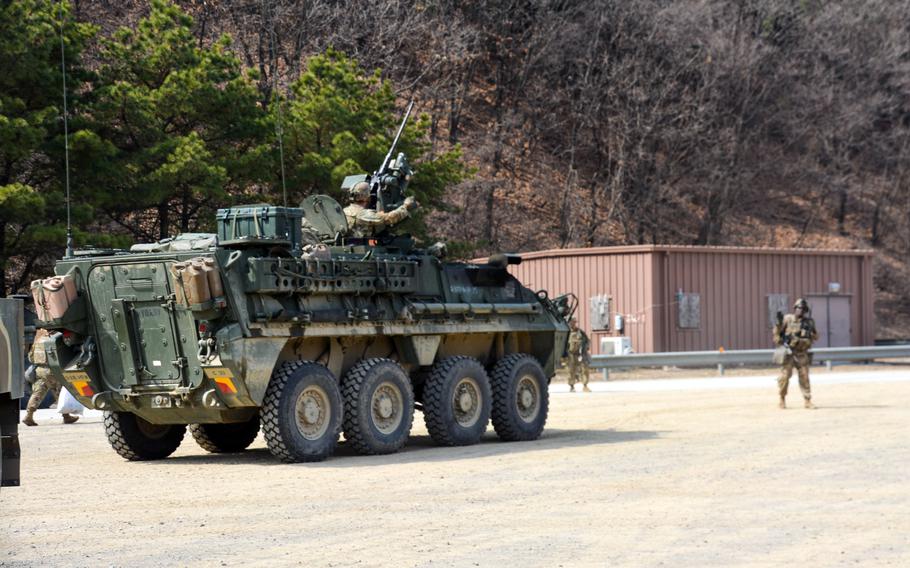
U.S. soldiers from 1st Battalion, 17th Infantry Regiment, 2nd Stryker Brigade Combat Team prepare for the Warrior Shield exercise at Rodriguez Live Fire Complex in Pocheon, South Korea, Wednesday, March 22, 2023. (Christopher Green/Stars and Stripes)
POCHEON, South Korea — Troops of the U.S. 2nd Infantry Division and South Korean army wrapped up their largest joint field exercise in six years Thursday with live-fire training near the border with North Korea.
Roughly 800 U.S. and 400 South Korean soldiers conducted the four-day training that ended Thursday at the Rodriguez Live Fire Complex in Pocheon, about 16 miles from the Demilitarized Zone dividing the Korean Peninsula.
Warrior Shield, the largest-ever for the 2nd ID, headquartered at Camp Humphreys, was spread across six training sites, said Army Col. Brandon Anderson, the division’s deputy commanding officer for maneuver.
“When [North Korea] is firing ballistic missiles, it provides an incredible focus to this training,” he told reporters Wednesday. “And that’s what you have right now — motivated soldiers conducting focused training.”

Col. Brandon Anderson, the 2nd Infantry Division's deputy commanding officer for maneuver, speaks to reporters during the Warrior Shield exercise at Rodriguez Live Fire Complex in Pocheon, South Korea, Wednesday, March 22, 2023. (Christopher Green/Stars and Stripes)
The drill, designed to hone defensive tactics is “as realistic as we can make it,” Anderson said.
“Part of our purpose in times of conflict is to defeat the enemy and secure weapons of mass destruction from further proliferation,” he said. “We’ve incorporated that into the scenario.”
Lt. Col. Kim Sun Kyu, commander of South Korea’s 81st Tank Battalion, told reporters the exercise strengthens “our firepower-operating abilities to strike the enemy with mobility.”
Roughly seven hours before South Korea’s K1A2 main battle tanks started firing rounds at the range on Wednesday, North Korea fired an unspecified number of cruise missiles toward the East Sea, or Sea of Japan.
North Korea has fired nine ballistic missiles so far this year. It most recently fired one short-range ballistic missile on Sunday, which the Joint Chiefs described in a message to reporters as “a serious provocation that harms peace and stability on the Korean Peninsula as well as the international community.”
North Korea’s launches “motivates us to train harder,” Anderson said.
Warrior Shield aims to enhance “tactics, techniques and procedures” with operations across many domains, including air, land, sea, space, cyber and special operations, according to a U.S. Forces Korea news release on March 2.
The exercise runs concurrently with Freedom Shield, a separate, 11-day exercise that focuses on simulations and includes personnel from U.N. Command and the Combined Forces Command.
Warrior Shield this year brings together a wider array of military assets, such as U.S. M777 and South Korean K-9A1 howitzers, AH-64E Apache attack helicopters and A-10 Thunderbolt II Warthogs, to “provide more than one dilemma to our adversary,” Anderson said.
The 2nd Stryker Brigade Combat Team out of Joint Base Lewis-McChord, Wash., also took part in the exercise. The unit is the first Stryker team in South Korea after the 2nd ID replaced armored brigade combat teams rotating into the country starting in October.
The Strykers “performed magnificently,” Anderson said.
“It is everything we’ve expected it to do and better,” he said. “Its efficiency, its ability to maneuver, ability to get closer to the adversary … has exceeded what we’ve expected for it to do.”

U.S. soldiers from 1st Battalion, 17th Infantry Regiment, 2nd Stryker Brigade Combat Team direct a Stryker vehicle during the Warrior Shield exercise at Rodriguez Live Fire Complex in Pocheon, South Korea, Wednesday, Mach 22, 2023. (Christopher Green/Stars and Stripes)